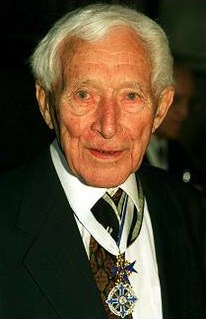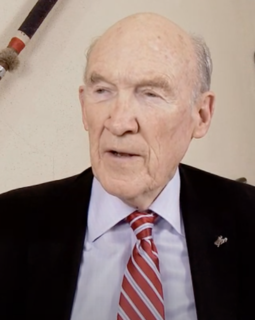A Quote by Bertrand Russell
The use of force stands in need of control by a public neutral authority, in the interests of liberty no less than of justice. Within a nation, this public authority will naturally be the state; in relations between nations, if the present anarchy is to cease, it will have to be some international parliament.
Related Quotes
Although objectively greater demands are placed on this authority, it operates less as a public opinion giving a rational foundation to the exercise of political and social authority, the more it is generated for the purpose of an abstract vote that amounts to no more than an act of acclamation within a public sphere temporarily manufactured for show or manipulation.
The Magna Carta is an early reminder of the crucial difference between freedom and liberty. Liberty is freedom that is unique to humans, it is guaranteed by law. All animals are free, but in a system of humans total freedom is anarchy. Humans have thrived by letting a dominant authority regulate freedom. Liberty is a freedom that the authority has granted or has been persuaded to grant. For centuries, the state and the people have negotiated, peacefully and violently.
The clearer and deeper the public opinion of the world, in the first instance the opinion of the working masses, will understand the contradictions and the difficulties of the socialist development of an isolated country, the higher will it appreciate the results achieved. The less it identifies the fundamental methods of Socialism with the zigzags and errors of the Soviet bureaucracy, the less will be the danger that, by the inevitable revelation of these errors and of their consequences, the authority, not only of the present ruling group, but of the workers' State itself, may decline.
The Anarchists are right in everything; in the negation of the existing order, and in the assertion that, without authority, there could not be worse violence than that of authority under existing conditions. They are mistaken only in thinking that Anarchy can be instituted by a revolution. "To establish Anarchy." "Anarchy will be instituted." But it will be instituted only by there being more and more people who do not require protection from governmental power, and by there being more and more people who will be ashamed of applying this power.
There are some troubles from which mankind can never escape .... have never claimed that liberty will bring perfection; they simply say that its results are vastly preferable to those that follow from authority .... As a choice of blessings, liberty is the greater; as a choice of evils, liberty is the smaller. Then liberty always says the Anarchist. No use of force except against the invader.
The anarchist, as the born foe of authority, will be destroyed by it after damaging it more or less. The anarch, on the other hand, has appropriated authority; he is sovereign. He therefore behaves as a neutral power vis-à-vis state and society. He may like, dislike, or be indifferent to whatever occurs in them. That is what determines his conduct; he invests no emotional values.
God has ordained the state as a delegated authority; it is not autonomous. The state is to be an agent of justice, to restrain evil by punishing the wrongdoer, and to protect the good in society. When it does the reverse, it has no proper authority. It is then a usurped authority and as such it becomes lawless and is tyranny.
If the resources of different nations are treated as exclusive properties of these nations as wholes, if international economic relations, instead of being relations between individuals, become increasingly relations between whole nations organized as trading bodies, they inevitably become the source of friction and envy between whole nations.



































